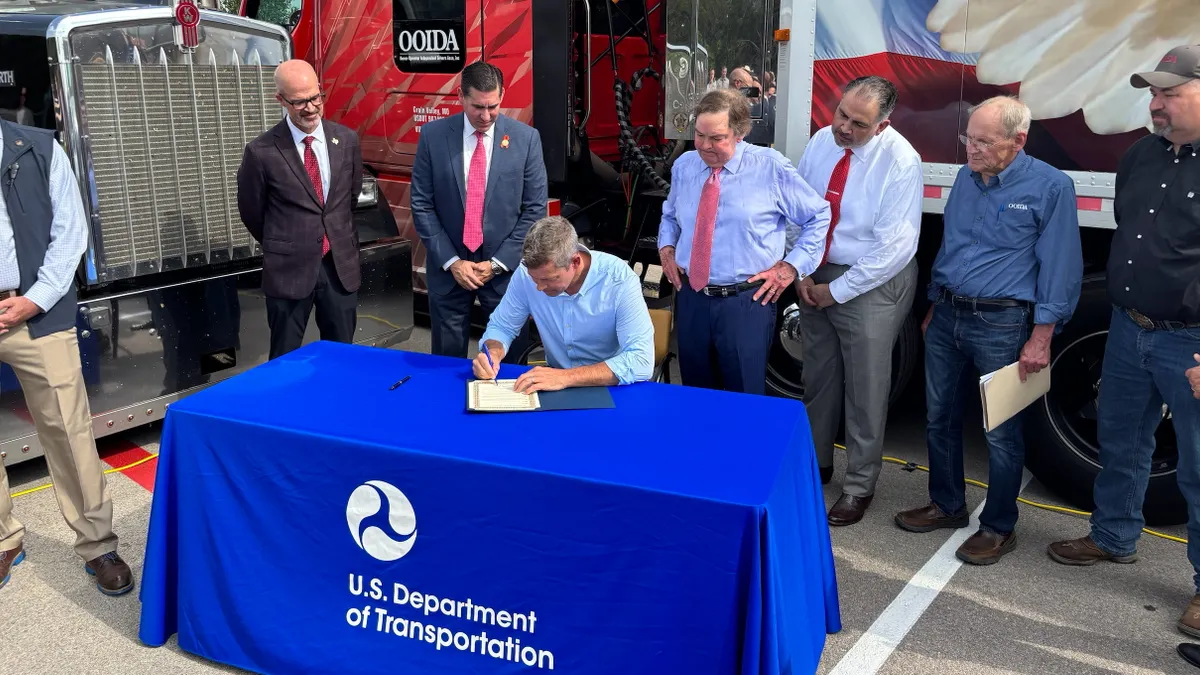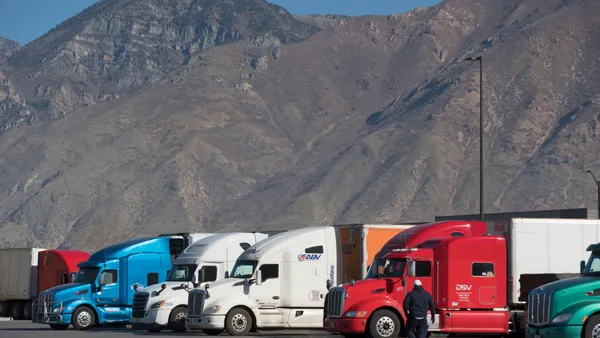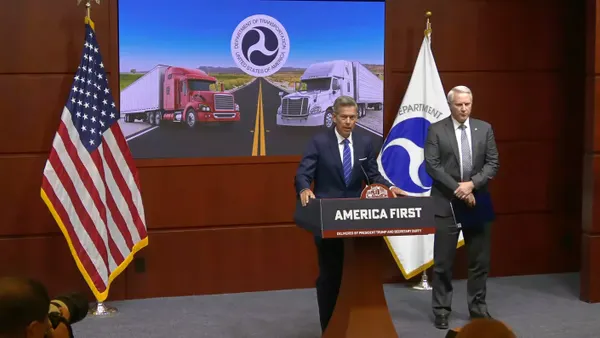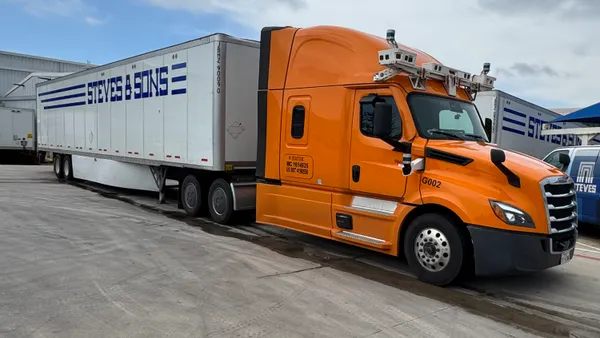Dive Brief:
- All medical certification records for commercial drivers must be filed electronically as of June 23, according to a Federal Motor Carrier Safety Administration press release.
- The U.S. Department of Transportation believes the new digitized system will reduce the opportunity for document fraud and make it easier for roadside inspectors and law enforcement to access drivers’ medical certification statuses.
- Currently, 37 states are already compliant with the Medical Examiner’s Certification Integration rule. The remaining states are expected to meet the requirements in the coming months.
Dive Insight:
First published by the FMCSA in 2015, the Medical Examiner's Certification Integration rule does exactly what its name implies — it integrates medical certification records into state-managed systems, per the release.
For CDL holders and carriers, that means paper records can no longer be used as proof of medical certification. It also means that carriers won’t have to verify that those certificates were issued by a medical examiners on the National Registry, and drivers don’t have to submit paper copies to state driver licensing agencies, per the NRII Fact Sheet.
Instead, medical examiners must electronically submit examination results to FMCSA’s National Registry by midnight of the next calendar day following the examination. FMCSA will electronically transmit drivers’ examination results — which can be “medically qualified,” “medically unqualified” or “voided” — from its National Registry to state driver licensing agencies. Then, states will make that information available on the Commercial Driver’s License Information System driver motor vehicle record.
“By integrating electronic medical certification records directly into state-managed systems, NRII helps ensure only qualified drivers are on our roads while giving our state and enforcement partners the real-time information needed to do their jobs more effectively,” said FMCSA Chief Counsel Jesse Elison in the release.
“Implementation of this rule embodies FMCSA’s commitment to commonsense, efficient, and effective solutions that enhance safety and accountability,” Elison said.












